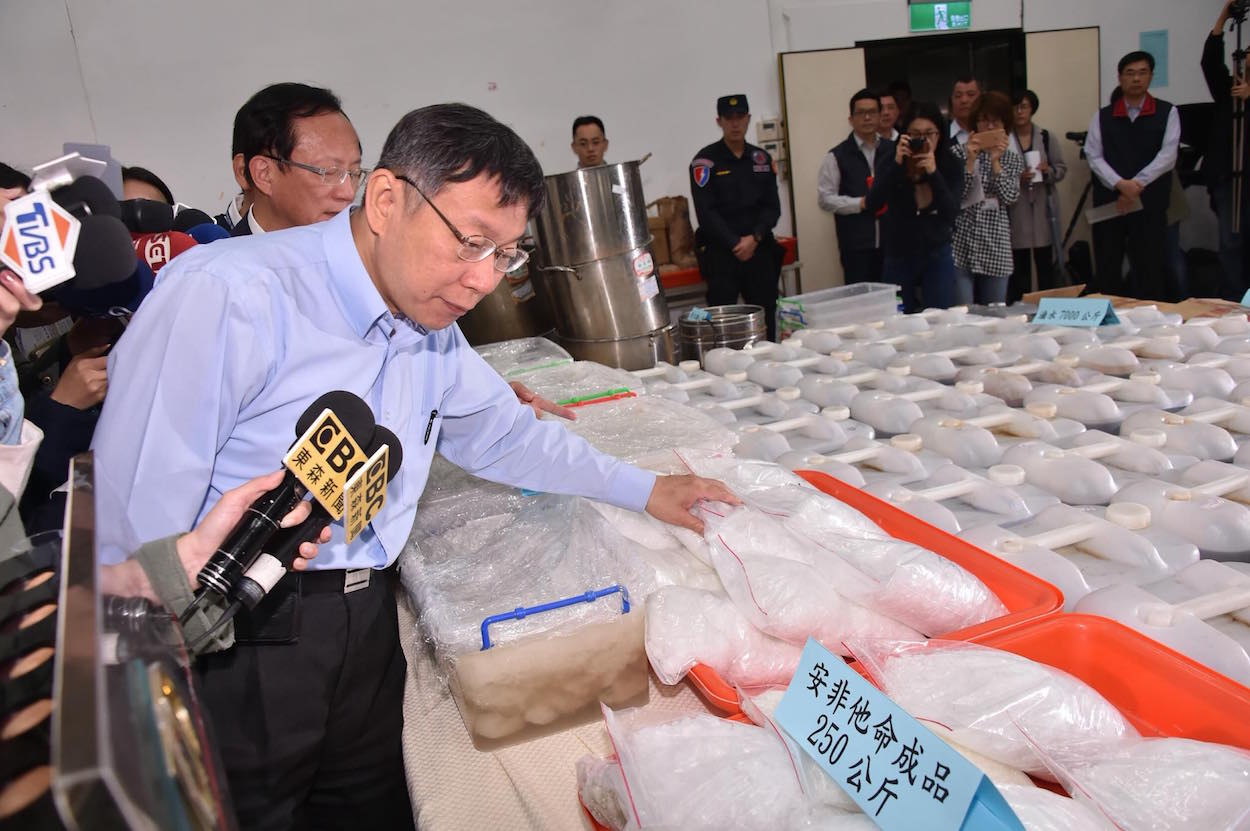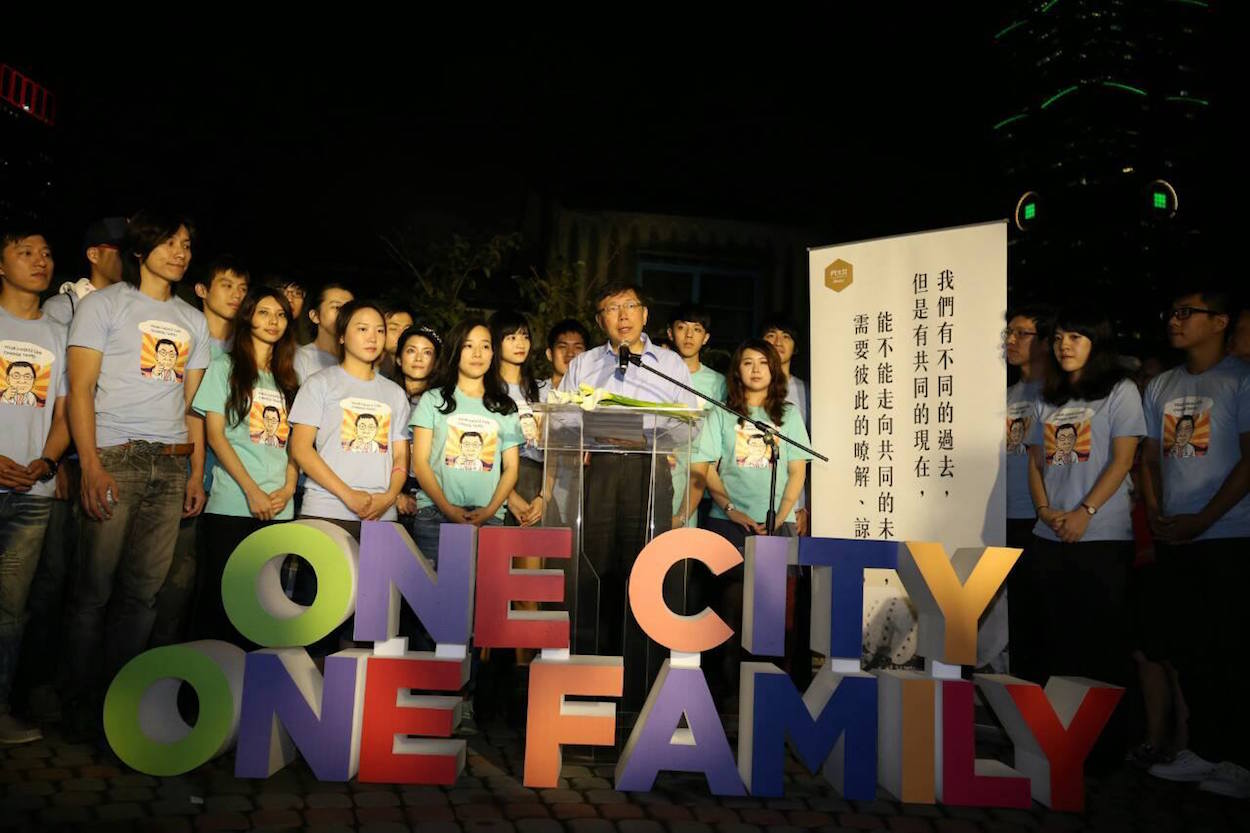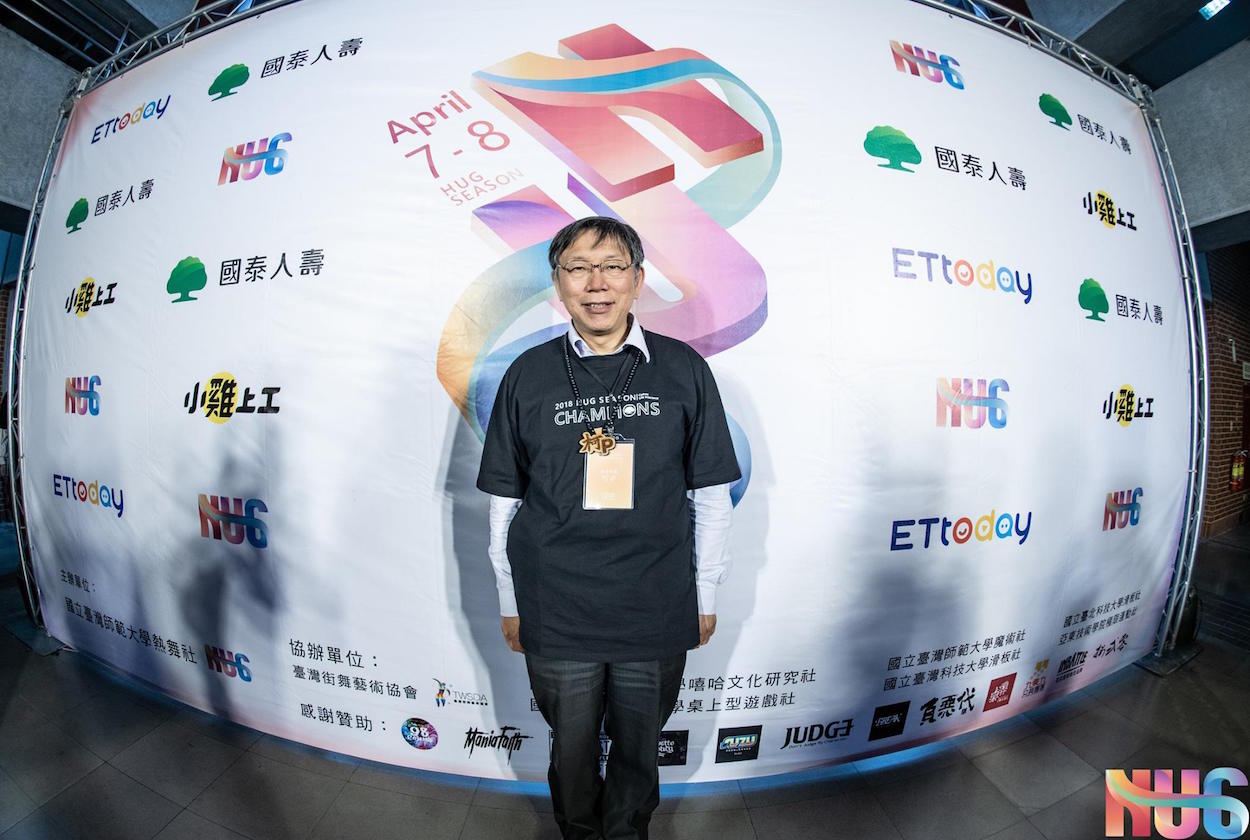by Brian Hioe
語言:
English
Photo Credit: Ko Wen-Je/Facebook
AS TAIPEI 2018 mayoral elections approach ever closer, it remains an opaque question as to whether the DPP will back Ko Wen-Je. In the meantime, one can divine something of the shifts in the DPP’s position going into 2018 elections as compared to 2016 from the continued debate over whether the DPP will endorse Ko this year.
The DPP decided to back Ko in 2014, despite that Ko was a political independent and not a party member. In doing so, the DPP took a bet on Ko, seeing as Ko was a newcomer to politics with no political experience. A crucial factor in this was likely that in 2014, Ko was supported by post-Sunflower youth activists, with the DPP looking to leverage on the momentum from the 2014 Sunflower Movement as well as to try and incorporate new political forces which had emerged from the Sunflower Movement into it as best as it could. While Ko was victorious, in reality, it is highly questionable as to whether Ko could have won without the DPP support.
 Ko Wen-Je. Photo credit: Ko Wen-Je/Facebook
Ko Wen-Je. Photo credit: Ko Wen-Je/Facebook
Ko’s victory was understood as that of an unorthodox candidate seen as not adhering to the traditional divide between pan-Blue and pan-Green, and as an example of an everyday person who had entered politics and been successful at it. In part, this was why he was seen as able to win over traditionally pan-Blue Taipei voters.
Subsequently, what became known in the public imagination as the “Ko model” would have a large influence on the DPP’s electoral strategy going into 2016. The DPP choose to cooperate with “Third Force” parties composed of youth activists who had entered into politics after the Sunflower Movement instead of edging them out, again, looking in order to coast off of lingering momentum from the 2014 Sunflower Movement and perhaps with the hope that it would eventually able to co-opt such individuals. Nevertheless, it is interesting to note that both Ko and the “Third Force” parties have since diverged sharply with the DPP.
Firstly, many now question whether Ko’s political aims are pro-Taiwan in nature, when this was tacitly assumed in 2014. Ko has since provoked severe backlash from within the pan-Green camp for failing to clear up opaque relations with China, as well as public appearances with pan-Blue political figures with a checkered history during the authoritarian period.
Namely, while Ko had advanced the initiative of conducting city-level exchanges between Taipei and Shanghai, which led to questions after Ko made public remarks suggesting that Taiwan and China were members of one family and had a shared destiny during these exchanges. Questions about what Ko was aiming at through such exchanges exploded out into the open after violent attacks on pro-independence students by pro-China gangsters on the NTU campus, students demonstrating that the event claimed that Taiwan was a part of China. Ko, however, failed to clear up questions as to why policing of such gangsters was minimal but continued to defend such exchanges as successful.
Ko later made public appearances with pan-Blue figures such as James Soong of the People First Party, who was responsible for directly persecuting political dissidents during authoritarian times as the former head of the Government Information Office, as well as “White Wolf” Chang An-Lo, a former killer of political dissidents for the KMT, who had links to the gangsters who attacked students at NTU. Provoking further ire, Ko has praised former dictator Chiang Ching-Kuo as a model of governance in public numerous times and suggested that Chen Shui-Bian was only faking his illness to be released on medical parole.
 Ko following his victory in 2014. Photo credit: Ko Wen-Je/Facebook
Ko following his victory in 2014. Photo credit: Ko Wen-Je/Facebook
Perhaps from an original position of being “beyond pan-Blue and pan-Green” Ko can be seen as having drifted too far towards the pan-Blue camp for the DPP, then, although some speculate that Ko’s shift in orientation was to try and retain the support of pan-Blue leaning Taipei voters.
On the other hand, while only the NPP would be successful in getting into legislature in 2016, it is ironic to note that the “Third Force” parties have generally done more or less the exact opposite as Ko since 2016—that of drifting towards pro-independence and the politically progressive that the DPP traditionally upheld, but has since distanced itself from since sweeping the legislature and taking the presidency in 2016. The “Third Force” was also understood by many as “beyond pan-Blue and pan-Green” because “Third Force” parties positioned themselves as separate from the DPP and the KMT alike, yet since 2016, they can perhaps be seen as having, contrastingly to Ko, drifted more towards the deeper end of Green spectrum.
The DPP, then, finds itself now uncomfortably caught in the political center between the political forces it embraced in 2014 and 2016, facing pressure from both sides.
Perhaps what Taiwanese civil society groups and post-Sunflower Movement youth activists perceive the DPP’s increasing conservatism is not incorrect, in this light. It is already clear that the DPP will not embrace the “Third Force” this time around in 2018 local elections because of clashes with the “Third Force” in issues ranging from that of Taiwanese independence advocacy to gay marriage, labor rights, and nuclear energy. It is also notable that the DPP is advancing very few youth candidates this time around, instead primarily banking on established politicians, while at the same time, the KMT has put forth a number of youth candidates. However, it still remains an open possibility that the DPP could endorse Ko Wen-Je.
 Photo credit: Ko Wen-Je/Facebook
Photo credit: Ko Wen-Je/Facebook
With the growing split between Ko and the DPP, Ko has in the past proved obstinate. With DPP party leader and current Taiwanese president Tsai Ing-Wen stating publicly that DPP support of Ko would be contingent on whether Ko demonstrated support of “Taiwanese values”, Ko would hit back against such comments. Yet Ko would in the past week soften his stance, apologizing for comments claiming that Taiwan and China are part of the same country, although the DPP response to this apology has been lukewarm.
In truth, Ko has quite possibly become sufficiently popular as a political independent that he could possibly edge out both a KMT challenger as well as a DPP challenger, if the DPP advanced its own candidate. But Ko evidently wishes for the DPP endorsement, perhaps realizing that his successes in 2014 mayoral elections probably would not have taken place without the DPP endorsement, and still feeling insecure without the DPP endorsement.
Perhaps, then, controversy regarding whether the DPP will endorse Ko is ultimately revealing of the fraught position of the DPP at present. But as with 2014 mayoral elections, ultimately, the matter will likely be decided by party primaries and, after the DPP announces when primaries will take place, the situation will become clearer.

